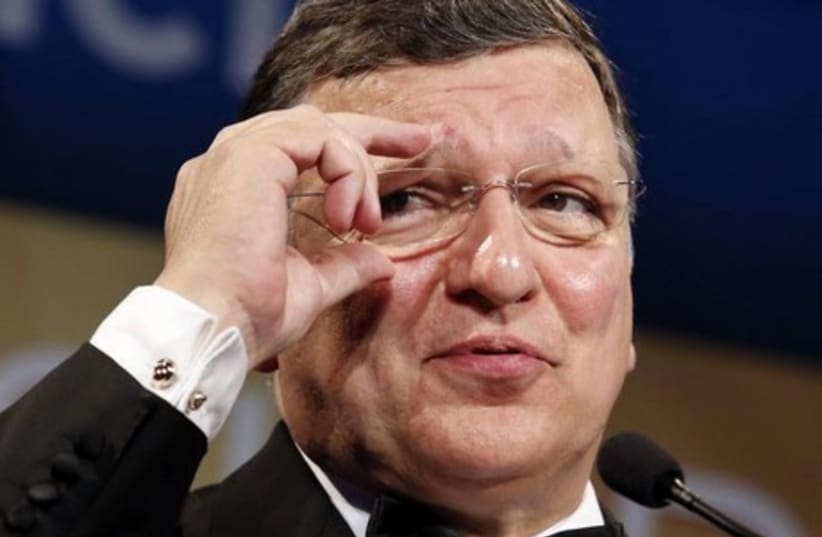Outgoing European Commission President Jose Manuel Barroso told the Herzliya Conference on Sunday that the current "pause" in the Israeli-Palestinian negotiations was "untenable in the long run." One reason, he said, is that a "simple pause can bring about further deterioration in the situation."
Barroso said the EU understood that Israel needed "robust assurances" that peace would increase – not decrease – the country's security and must lead to an "end to the conflict once and for all."Barroso, on his second visit to Israel since becoming the president of the European Commission a decade ago, said that the blueprints of peace are on the table, and that what was required now was the "political courage on both sides to take decisive steps."
The EU leader reiterated the European opposition to settlement construction, saying "we are deeply concerned that continued settlement activity renders more remote the two state solution that is in Israel's interests."
He said he recognized that Israeli-Palestinian peace was not a "magic wand" that would solve all the problems in the Mideast overnight, but that it would "eliminate a key fault line running through the region."
He reiterated the EU's commitment to grant Israel and a future Palestinian state with a special privileged status with the EU if an agreement is signed, something that he said would make Israel's relationship with the EU similar to that which exists today between the EU and non-EU states such as Norway and Switzerland.
"There is nothing inevitable about conflict, old enemies can be reconciled and confrontation replaced by cooperation," he said, drawing on European experience."
He said that there are basic commonalities between all people. "All human beings, after all, want to live in peace, and have the right for themselves and their children and grandchildren to live in peace, and study and work and enjoy life," he said. "I'm sure this is common to people in this region, why should it be different?"
Barroso discussed the current situation in talks earlier in the day with Netanyahu. Prior to those talks, Barroso and Netanyahu witnessed the formal signing of Israel's participation in the EU's Horizon 2020, an 80 billion euro science and innovation program.
Israel's participation in the program was made possible after both sides agreed to disagree regarding EU's settlement guidelines, which stipulate that no EU grants, prizes or financial instruments, such as loans, could go to Israeli entities operating outside the Green Line, including in east Jerusalem and the Golan Heights.
